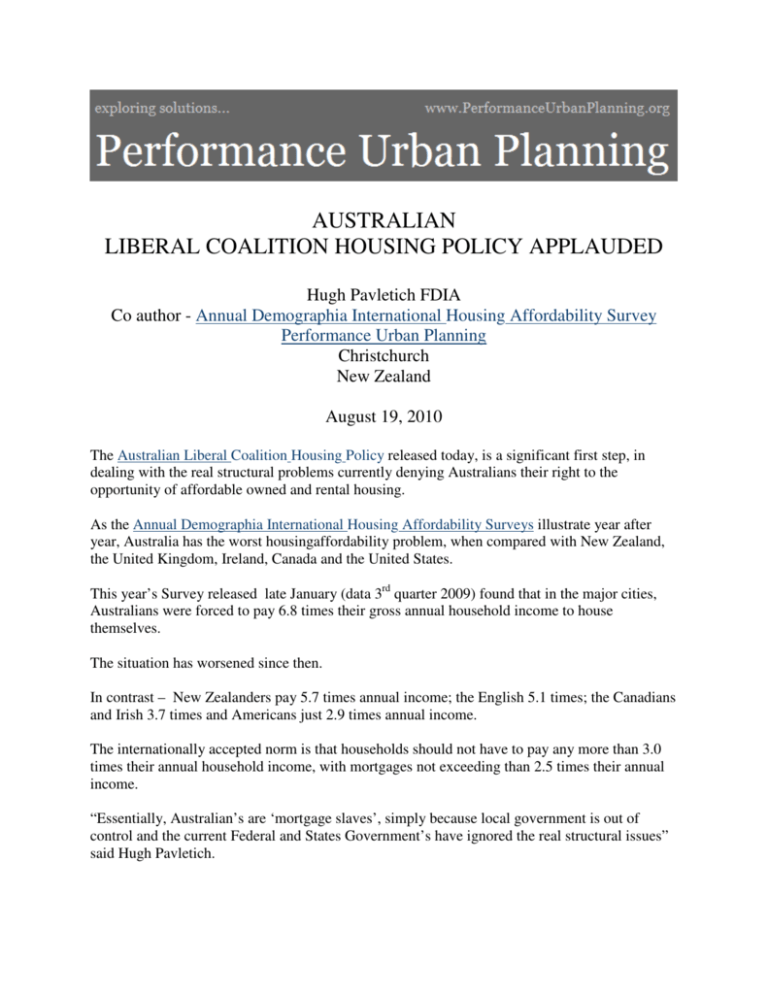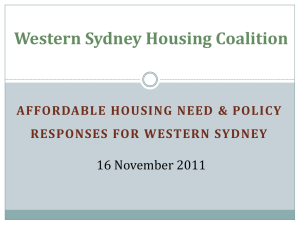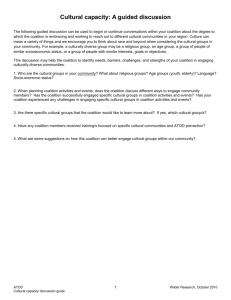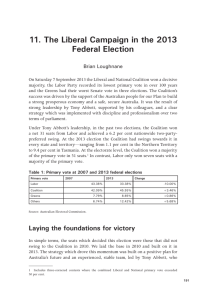australian liberal coalition housing policy applauded
advertisement

AUSTRALIAN LIBERAL COALITION HOUSING POLICY APPLAUDED Hugh Pavletich FDIA Co author - Annual Demographia International Housing Affordability Survey Performance Urban Planning Christchurch New Zealand August 19, 2010 The Australian Liberal Coalition Housing Policy released today, is a significant first step, in dealing with the real structural problems currently denying Australians their right to the opportunity of affordable owned and rental housing. As the Annual Demographia International Housing Affordability Surveys illustrate year after year, Australia has the worst housingaffordability problem, when compared with New Zealand, the United Kingdom, Ireland, Canada and the United States. This year’s Survey released late January (data 3rd quarter 2009) found that in the major cities, Australians were forced to pay 6.8 times their gross annual household income to house themselves. The situation has worsened since then. In contrast – New Zealanders pay 5.7 times annual income; the English 5.1 times; the Canadians and Irish 3.7 times and Americans just 2.9 times annual income. The internationally accepted norm is that households should not have to pay any more than 3.0 times their annual household income, with mortgages not exceeding than 2.5 times their annual income. “Essentially, Australian’s are ‘mortgage slaves’, simply because local government is out of control and the current Federal and States Government’s have ignored the real structural issues” said Hugh Pavletich. Following Australia’s 2007 Federal election, the Sydney Morning Herald commissioned Fitch Ratings Research to examine why the then Liberal led Government failed and Labor won. Stuart Washington reported within Fear of losing homes drove Labor win that – “Voters in electorates recording the highest rates of home repossessions voted more strongly for Labor than areas not facing the same loan pressures, according to figures on the influence mortgage stress had on the federal election result.” “In his post election speech to the National Press Club, Labor’s (then) national secretary, Tim Gartrell, noted the swing to Labor was not confined to one single group but that the party had made significant inroads among home loan borrowers.” “ ‘People with mortgage repayments of between $1400 to $1600 a month, just above the average repayment, stood out as one group that moved solidly to Labor’ he said.” Clearly – the current Labor Government has failed voters suffering unnecessary mortgage stress. As this year’s Annual Demographia Survey illustrates, households in affordable North American housing markets are paying 20% and less of their annual income on mortgage repayments. This year’s major issue for Australian voters is “housing affordability”, as news com au reported August 2 within Election issues: Don't bet your house on this campaign | News.com.au stating – “Julia Gillard and Tony Abbott have hardly mentioned the issue most important to you in this federal election.” “As we near the halfway mark of the campaign for the August 21 election, news com au’s interactive voting tool is showinghousing affordability to be the burning issue……….”. The Liberal led Coalition Housing Policy clearly illustrates that it is prepared to start in to the long overdue process of dealing with the real structural issues, currently denying Australian’s affordable housing. Within the section (Page 5) of the Coalition policy – THE COALITIONS PLAN FOR REAL ACTION ON HOUSING it states – The Coalition has a plan for real action on housing. We believe that the best way to make housing more affordable is to encourage the States, Territories and local government to release land, cut red tape, improve planning processes and reduce charges. The Coalitions housing policy is focused on outcomes not inputs. Through national leadership the Coalition can help make housing more affordable for all Australians. The Coalition also believes that the Federal Government has a role to encourage States and Territories to be more active in addressing social housing and homelessness. The Coalition’s Plan for Real Action for Housing will – Introduce a National Housing Affordability Compact. The Coalition will establish a National Housing Affordability Compact with accommodation targets for each State or Territory over five years. In order to continue to receive federal funds, States and Territories will need to increase land supply and reform their planning and approval systems under the National Housing Affordable Agreement (NAHA). States and Territories will need to set affordability targets to guide land releases and dwelling approvals. In order to receive federal funds, States and Territories would need to demonstrate that they had a plan for delivering these targets and those approvals and land releases occurred consistent with the targets established. The Coalition will review State, Territory and local government charges, which have been contributing an increasing component to the cost of development. State and local governments that build higher charges into the cost of housing will be less able to meet their home affordability obligations under the compact. “The Liberal led Coalition is to be applauded for taking a long overdue performance based approach, so that housingaffordability can be restored in Australia”, said Hugh Pavletich, co author of the Annual Demographia International HousingAffordability Survey adding “Young Australians deserve the same housing opportunities their parents and grandparents had.” Two days following the release late January of this year’s 6th Edition Demographia Annual Survey, the New Zealand National (Liberal) led Coalition Government’s Minister for the Environment Hon Dr Nick Smith, announced the formation of an Urban Technical Advisory Group, to explore the appropriate changes that need to be made, so that affordable housing is allowed to be built in New Zealand. This Groups work was completed two weeks ago and the Ministries of the Environment, Local Government, Infrastructure, Housing and Building are finalizing arrangements, with important announcements expected September.








